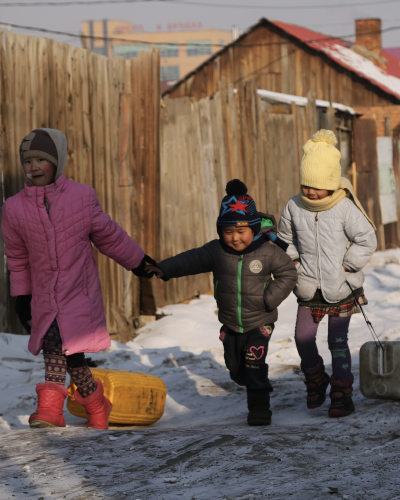Mongolia’s economic growth and development are threatened by frequent disasters caused by natural hazards. To better manage such events in the future, ADB and Japan are supporting Mongolia to scope out disaster risks, promote risk reduction and resilience, and develop applicable financing and insurance approaches.
frequent natural challenges
Mongolia’s vulnerability to disasters caused by natural hazards is heightened by its geographical location, underdeveloped infrastructure, persistent poverty, and harsh continental climate. The country faces over 3,000 small to medium-scale disasters annually, causing significant setbacks to its social and economic development. From 2004 to 2013, these disasters resulted in approximately $321 million in damages and losses, highlighting the urgent need for a comprehensive disaster risk management system.
The project was launched to address these challenges. Funded by the Japan Fund for Prosperous and Resilient Asia and the Pacific and the High-Level Technology Fund, the project aims to enhance Mongolia’s resilience by improving disaster risk assessments, promoting disaster risk reduction, and advancing disaster risk financing and insurance mechanisms. It supports Mongolia’s National Emergency Management Agency and other stakeholders in developing robust frameworks to better understand and plan for disaster risks.
assessing disaster risk, identifying vulnerabilities
Engaging with key stakeholders on disaster planning and preparation was a central focus of the project. These discussions and actions helped communities understand where and how disaster vulnerabilities could be addressed, fostering a collaborative approach to disaster management. The project implemented several key interventions to enhance Mongolia’s disaster resilience.
One primary initiative was the enhancement of disaster risk assessments, which involved improving hazard modeling and mapping to better identify risks and vulnerabilities. This allowed for more accurate predictions and better preparedness for potential disasters. Another intervention was the promotion of disaster risk reduction planning, which included developing strategies and action plans to minimize the impact of disasters on communities.
The project also focused on advancing disaster risk financing and insurance mechanisms. These financial tools, or “transfer instruments,” are designed to transfer the economic burden of disasters from individuals and the government to insurance companies or other financial entities. By providing funds for recovery and reconstruction, these mechanisms help mitigate the economic impact of disasters and enhance the country’s overall resilience.
planning for disasters to improve resilience
The project produced comprehensive national and provincial disaster risk assessment reports, updated hazard maps, and developed training materials. These resources, distributed to over 1,000 local officials and community leaders, enhance disaster planning and preparedness, reducing the impact on communities and infrastructure.
Another key result is the promotion of disaster risk reduction (DRR) strategies. The project integrated DRR into national and local development plans, creating a DRR planning and mainstreaming training report, manual, and tool kit. These resources have been utilized by over 500 policymakers and stakeholders, leading to more resilient communities.
The project also advanced disaster risk financing (DRF) and insurance mechanisms by developing a comprehensive DRF strategy and drafting a law for disaster risk insurance. This initiative, reviewed by the National Emergency Management Agency, is expected to benefit approximately 3 million citizens by providing a financial safety net in the event of a disaster.
“Mongolia faces severe development challenges due to the high rate of disasters that occur. Proactively planning and preparing for disasters caused by natural hazards with disaster modeling, disaster financing, and disaster risk reduction strategies will help Mongolia stay on the sustainable development track."


